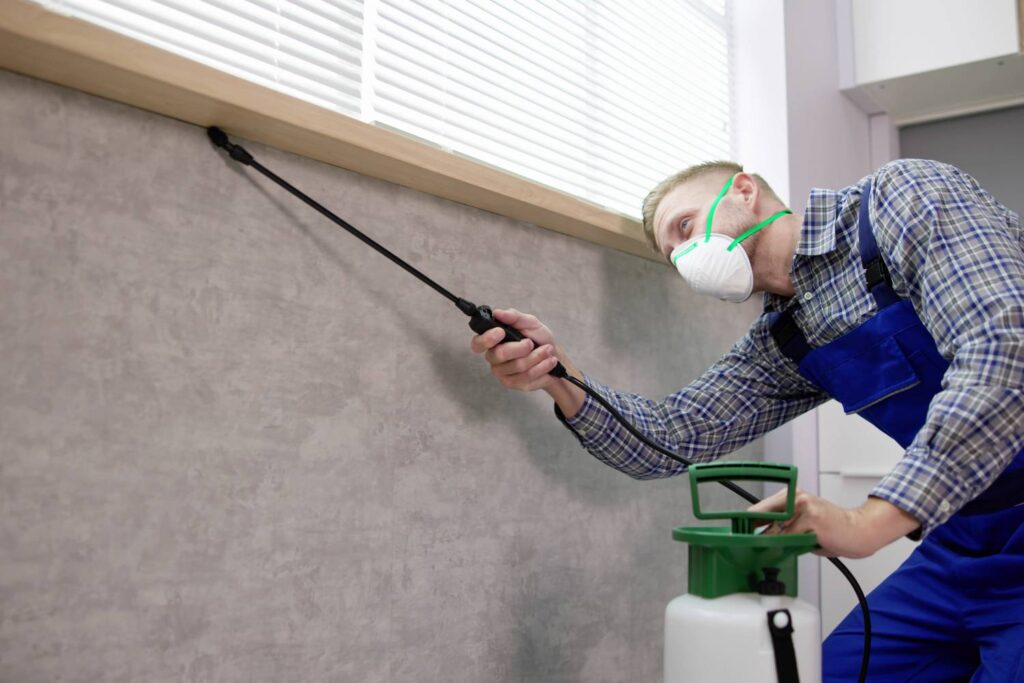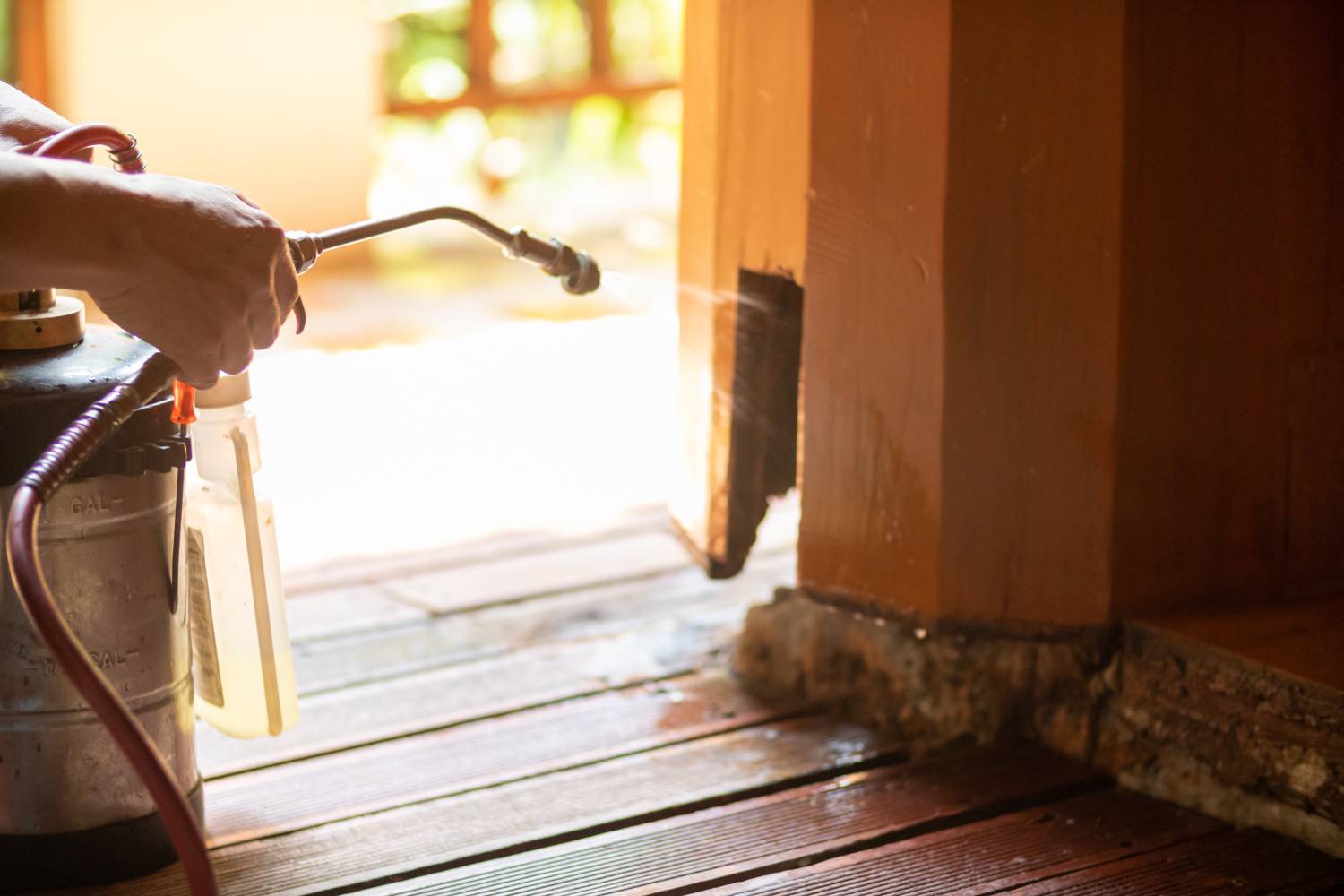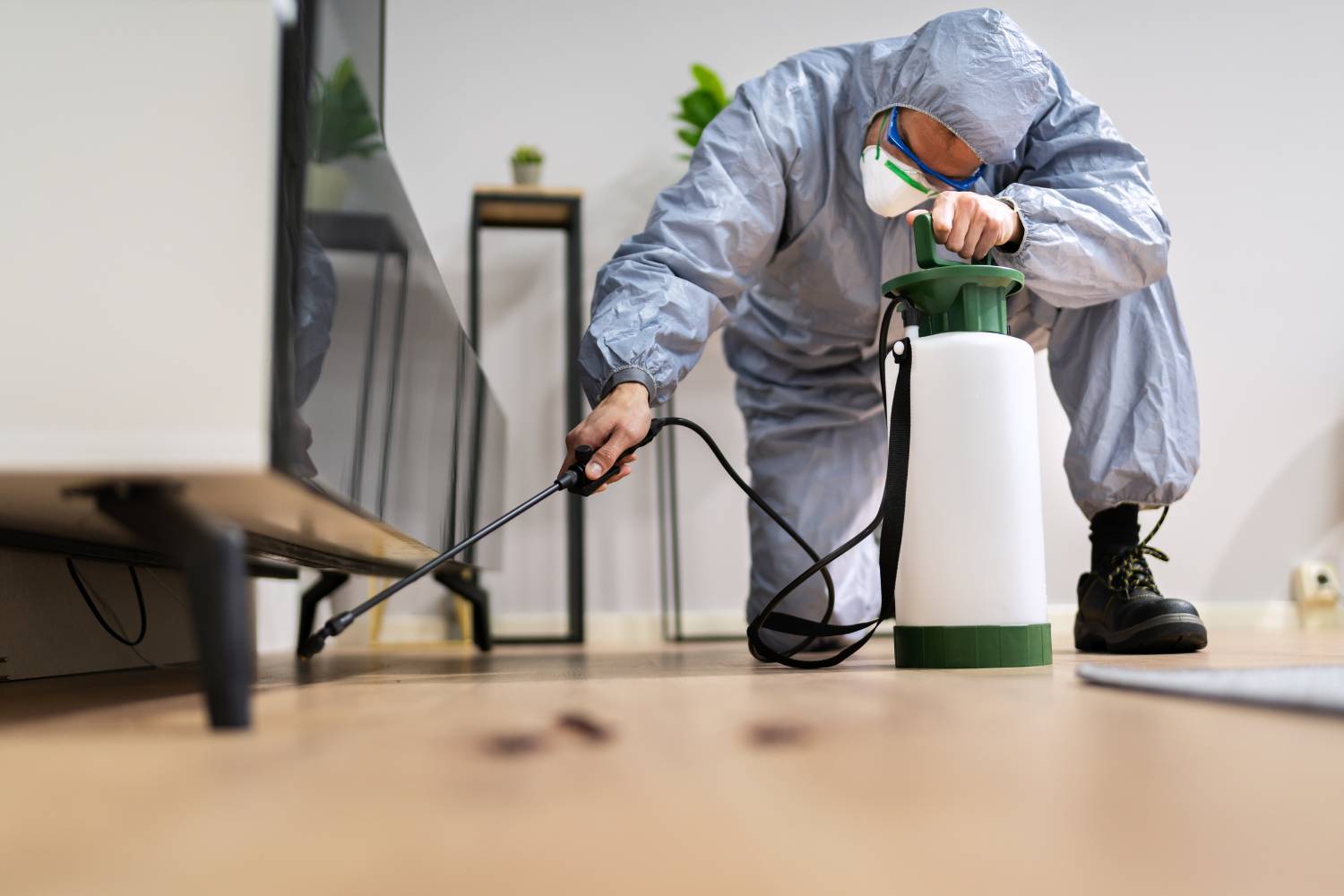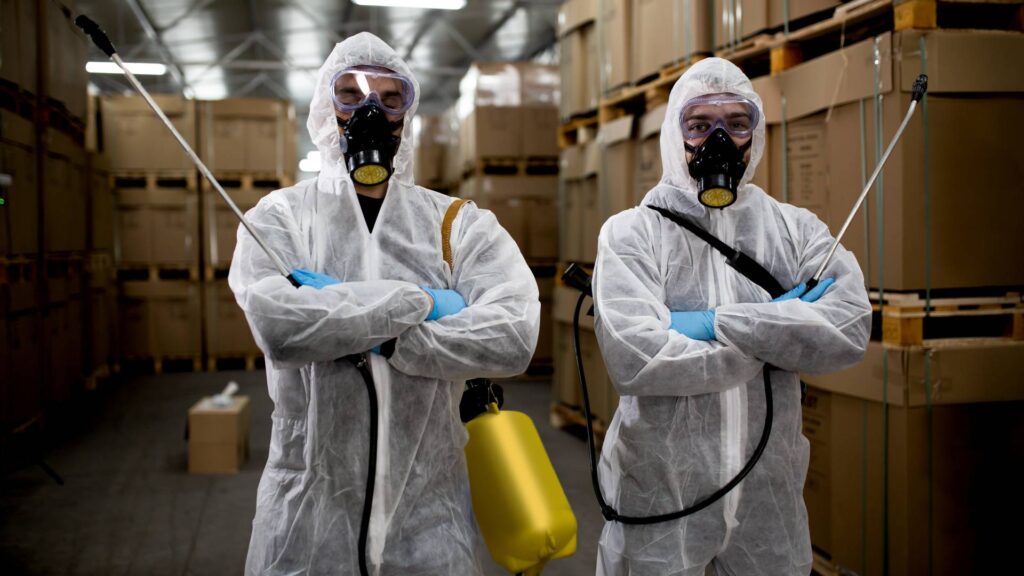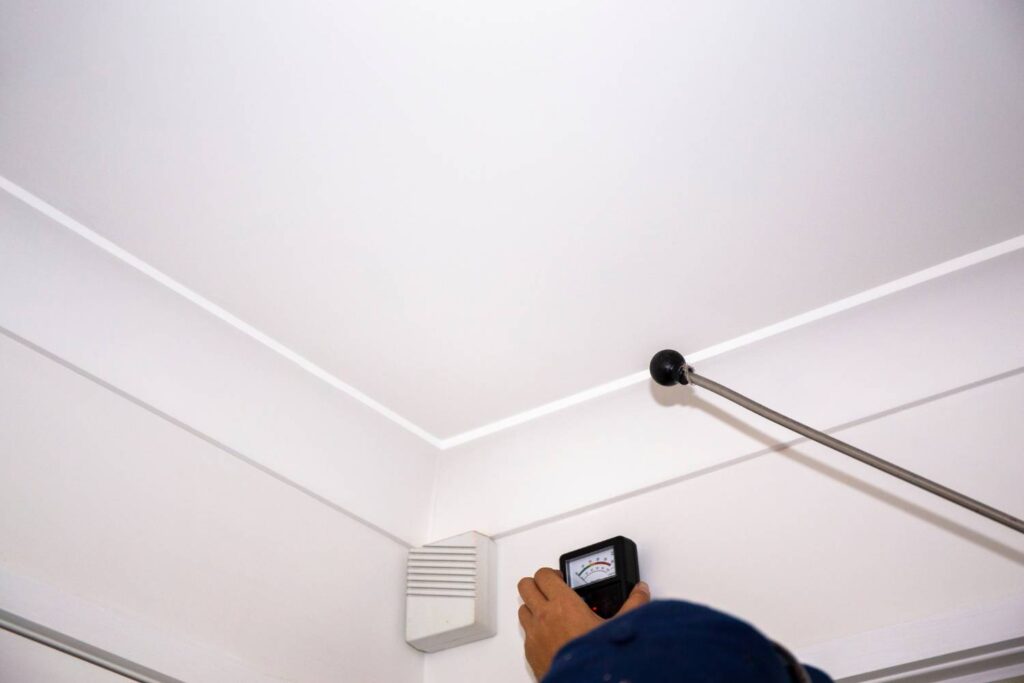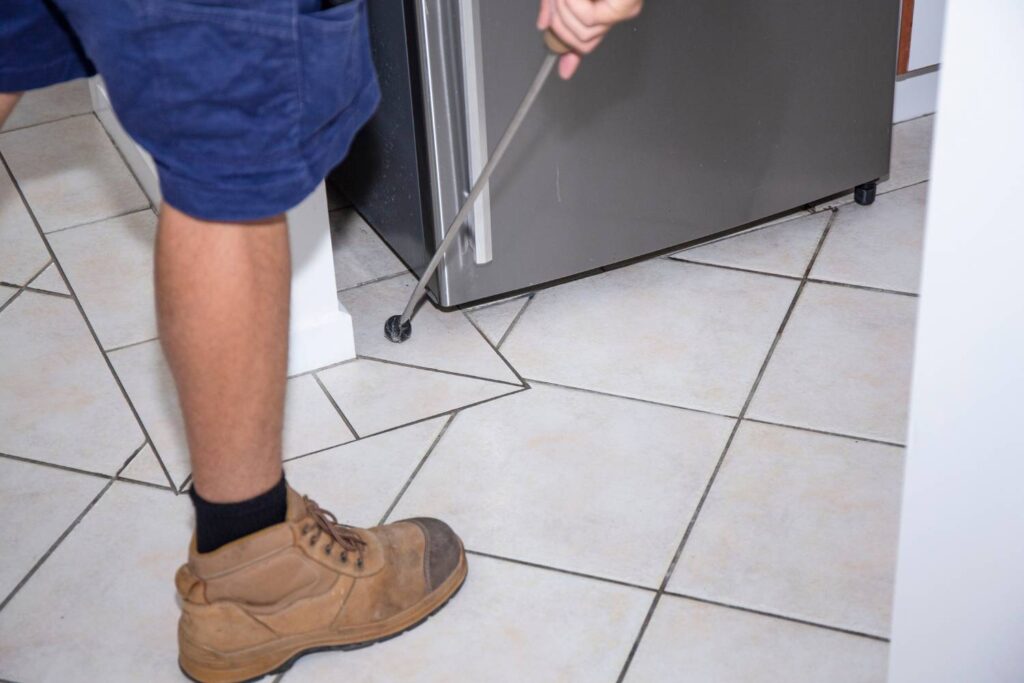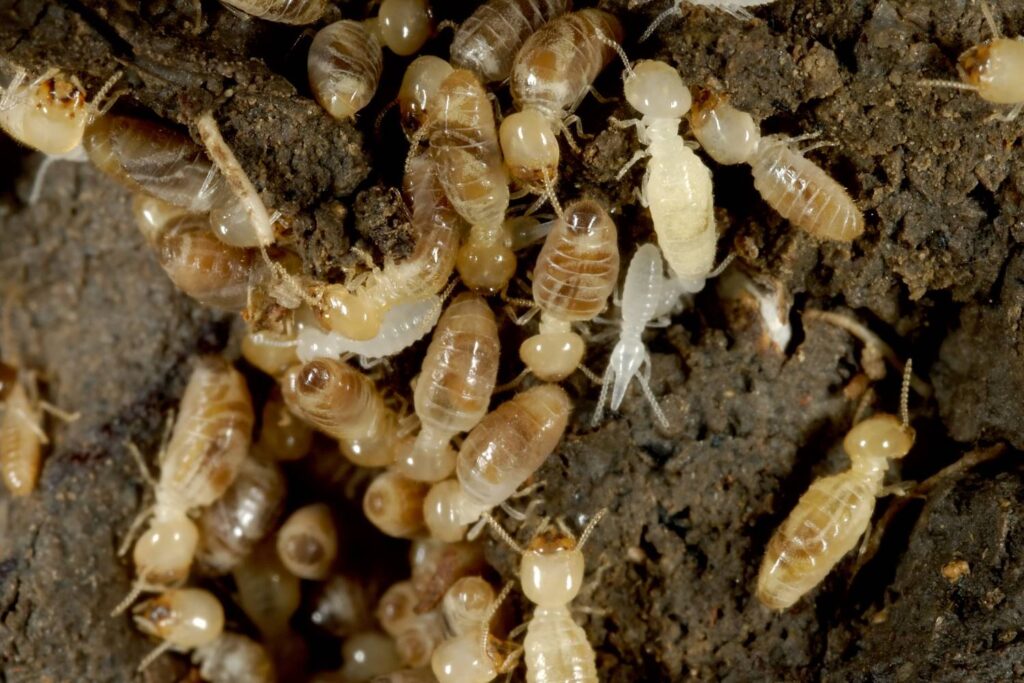Inspections for termites are a vital component of homeownership. They protect your residence against termite damage. Additionally, they can assist you in recognising prospective issues before they become severe.
Termite damage can be extensive and expensive, resulting in structural damage or costly repairs. Because of this, finding and preventing termite infestations requires routine inspections. A licenced specialist will conduct a routine termite inspection of your property to look for evidence of termite damage or activity.
In this blog post, we'll review the contents of a standard property termite inspection, its significance, and what to expect throughout the inspection process.
The Termite Inspection: What Is It? How Does It Work?
Termite inspections are crucial to defending your house or place of business against these damaging vermin. They are more likely to have termite damage or infestation. This comprises:
Inside Of Buildings:
The state must be checked in every room, including damp rooms like the kitchen, bathroom, and laundry room. Moisture metres are being used to find leaks.
Subfloor Areas:
The inspector should crawl to every corner of the subfloor to check the flooring timbers, drainage, and supporting structures.
External Areas Of Buildings.
When inspecting the regions close to the house, the inspector must be extra cautious. To find probable termite entry points, the inspector looks for various things, such as excessive moisture levels from leaky irrigation systems or drainage issues that could attract termites and hidden termite entry points in the soil or other structures.
Surrounding Areas:
Timber retaining walls, fences, garden beds, stumps, sheds, and structures should all be included in a termite check.
Roof Voids:
As part of the roof inspection, each piece of wood is checked from top to bottom in a way that lets the inspector crawl along the length of the roof if there is enough room. The inspector can't go into the roof area if there are any safety issues, like too high steps.
What's The Difference Between A Pre-Purchase And Termite Inspection?
Before buying a house, it's smart to inspect it for pests. An important piece of information that a pest inspection may provide to homebuyers is the presence or absence of termites, borer activity, mould, and wood degradation. Generally, homebuyers should get a pest inspection before offering a property, and an inspection can only be conducted with a signed inspection agreement.
On the other hand, a standard termite inspection is something that property owners usually do as part of their normal maintenance. Most of the time, these checks are done once a year, but homes more likely to be attacked by termites may be checked more often.
There is no need for an agreement for a normal termite inspection, and the inspection is only about termites. During a normal termite check, if signs of wood decay or borer activity are seen, it may be necessary to do more research.
How Often Should I Get My Property Inspected for Termites?
A standard property termite check looks at the whole property to find any signs of termite damage or activity. During the inspection, a licenced professional will look at the inside and outside of the house, as well as the basement, attic, and any crawl areas. They will also look at any wood structures on the land, like fences, decks, sheds, and trees or stumps.
The inspector will look for termite activity and damage using a variety of instruments and methods. These could involve listening for hollow sounds, tapping wood surfaces with a particular instrument to find hollow spots, and utilising moisture metres to find moisture levels in wood—a sign that termites may be active. They might also utilise a Termtrac motion detector or a termite-detection dog to find hidden infestations.
Why Are Standard Property Termite Inspections Important?
It would help to get a regular examination to keep termites from destroying your property. Among the many compelling arguments in favour of routine property inspections are the following:
Termite Activity Can Be Found Early
One of the main benefits of a regular property termite check is that it can find termite activity early on. By the time you observe termite activity, a house may be damaged. A licenced professional can find termite activity before it does a lot of damage to your home, which can save you a lot of money on fixes.
Keeping Insects At Bay In The Future
Additionally, you may assist avoid termite infestations by having a regular home inspection. A skilled professional can inspect your property for termites and advise you on how to get rid of them. They can suggest fixing foundation gaps or fractures, clearing the area around the property of wood debris or mulch, or cutting back any overhanging trees or bushes.
Keep Your Real Estate Investment Safe.
Your home is one of the most important purchases you will ever make, so keeping termites from damaging it is important. A standard property termite check can help protect your investment by finding any termite damage or activity and advising you on how to treat the problem and keep it from happening again.
Ensuring Conformity With State Laws
A regular termite inspection may be necessary before the sale or transfer of property in certain states. You can avoid problems with the sale and ensure your property conforms to state standards by scheduling a basic termite inspection.
Feeling At Ease
Lastly, a regular termite check can give you peace of mind. If you know that your home doesn't have any termites or that any action by termites has been found and treated, you can sleep better at night and not worry about the structure of your home.
To save your property from termite damage, avoid future infestations, safeguard your investment, comply with state rules, and gain peace of mind, it is vital to have a standard property termite inspection.
Investing in a standard termite check from a licenced professional can save you a lot of money on repairs and offer you peace of mind that your house is termite-free.
Standard Property Termite Inspection: Why Trust Pest Control Professionals?
Maintaining a routine inspection schedule for termites is the first defence against termite damage. Trusting termite inspectors is more important than doing a do-it-yourself job, no matter how tempting it may be.
Here are some reasons why you should trust pros in pest control to do a regular termite inspection of your home:
Background And Education
Trained pest control technicians can easily identify termite damage and activity. They are well-versed in termite habitats, activity detection, and damage assessment techniques. To properly detect and treat any termite activity or damage, this knowledge and experience are required.
The Right Tools And Methods
Pest control professionals have access to the right tools and know-how to do a full termite check. They have special equipment and tools that can find termite activity even in places that are hard to get to. They also know the right way to check different kinds of properties, whether they are homes or businesses.
Feasibility Study on Regional Rules
Termite inspection and treatment ordinances are complex, and pest control experts are well-versed in them. They will completely inspect your property for termites according to local laws if you employ them.
Full Reports
After a standard property termite inspection, pest control experts give full reports, including details about any termite activity or damage found and suggestions for treating and preventing termites. Termite problems need to be fixed with these records, which can also be used as proof to follow local rules or in negotiations with buyers or sellers of property.
Promising Methods of Treatment
At long last, termite infestations have viable treatment options available to pest control professionals. Based on the extent of the infestation and the requirements of your property, they can advise you on the most effective treatment solutions. They are also well-versed in the field and have the expertise to guarantee the efficacy and safety of any treatment.
If you hire a pest control professional to do a regular termite check on your home, they will be able to find and treat any termite activity or damage. This will protect your home from major damage and save you money in the long run.
Termite Inspections: What You Can Anticipate
Several procedures are carried out to evaluate the impact of termites on your home. To provide you with the most comprehensive report possible, a professional pest inspector will follow certain protocols to examine your house and property.
How Termite Inspections Are Conducted
When they first arrive, your pest control specialist may need up to two hours to thoroughly investigate your home and grounds.
Your inspector will examine all the obvious damage, both inside and out, and any cracks or holes in the landscaping. By doing so, they can collect as much data and evidence as possible before recommending.
If termites have taken over your home, you must hire a pest control company for a complete and safe treatment. If it were just a false alarm, your inspector would tell you what you can do to keep your home and land free of termites.
Examining the Inside and Outside
The first step of a pest control technician's assessment is to look around your property for signs of termite damage.
To do this, look for termite droppings, broken termite wings, and wood that isn't sound. Your inspection will also check the cabinets, crawl spaces, attics, baseboards, window sills, and door frames.
The inspector will search for termites nesting in cracks, tight spaces like restrooms, and other disturbed areas where moisture might build up. The inspector will examine your home's foundation, outside walls, and garage.
Checking Out the Property
An inspection of your immediate property is required after a thorough examination of your home's interior and exterior by your pest control professional. Because termites like natural wood and dirt, you can often find their nests outside your front door in wood chips, bushes, or other landscaping.
Determine if termites reside close to your property by inspecting its plants, trees, soil, and wood. You should expect to discover termites in your home at some point if they are present on your land.
When the tester completes their full inspection, they will give you a report with their findings and suggestions.
Advice on What to Do Next
They will review the information with you after your inspector completes their report. The condition of your home and property and your location will determine the specific termite findings you get. If your inspector finds any signs of termites or damage, they will inform you.
They will also plan what to do next in your situation. This could mean advising you on how to keep termites out of your home or land or how to fix problems they cause.
Things to Know Before Treating Termites
Termite treatment selection is more complicated than it appears. To ensure a successful termite treatment, it is important to know the following.
Noting The Termite Infestation Results You Found:
First and foremost, you need to document everything you learn about the termite infestation, including where the infestation was found, the extent of the damage, any additional indications of an infestation, any more areas you think might be termite-infested, etc.
By making careful notes and presenting them to the professionals during their inspection, you can save time, minimise damage, and assist them in developing a more effective bait solution for your termite infestation.
Getting Your Space Clean And Organised:
It would be much easier for the professionals to do a termite inspection and give your house the right solution and bait if you cleaned up your property and got rid of any dirt, dust, cobwebs, food scraps, or furniture that would be in their way.
Preserving And Eliminating Food:
It would help if you eliminated any potential food sources termites could use to invade and spread their damage throughout your property. Another good practice is to store perishable foods in sealed containers.
Moving Your Pets Between Places For Now:
Choosing a pet-friendly termite treatment over a chemical one could still cause problems for the experts as they set up the systems and do the termite removal. Because of this, it is best that you briefly move your pets.
Conclusion
Homeowners must get their homes inspected for termites on a regular basis to keep them safe from damage and to find problems before they get worse. During these checks, the inside of buildings, subfloor areas, exterior areas, surrounding areas, and roof voids are all checked. A licenced professional does a termite check to look for signs of damage or activity by termites.
Having termite checks is important to protect your home from damaging pests because they are more likely to have infestations. They may be done once a year, but homes that are more likely to be broken into may be checked more often. For a normal property termite check, the basement, attic, crawl spaces, outside and inside of the house, as well as any wood structures on the land are all looked at.
Having your home inspected for termites on a regular basis is important because they can find termite activity early on, which saves you money on fixes. Not only that, but they also keep bugs away by telling you how to get rid of them. They may suggest filling in cracks or holes in the foundation, cleaning up the area around the house with wood chips or mulch, or cutting back trees or bushes that hang over the house.
In some states, a regular termite inspection may be needed before the sale or transfer of property to make sure that state rules are followed. A regular termite check also gives you peace of mind. If you know your home doesn't have any termites, you can sleep better at night without worrying about the structure of your house.
To sum up, homeowners need to get their houses inspected for termites on a regular basis to keep them safe from damage, stop future infestations, protect their investments, follow state laws, and relax.
Having your house inspected for termites on a regular basis is important to keep it safe from damage and save money in the long run. It's important to trust experts who do pest control because they have the right training, tools, and knowledge, and they can do a feasibility study on local rules, give full reports, and suggest effective treatment methods.
Termite surveys follow certain steps to find out how much damage termites have done to your home. Step one is to look inside and outside your home for signs of termite damage, like termite droppings, broken wings, and wood that doesn't feel right. Inspectors also look in baseboards, cabinets, crawl spaces, attics, window sills, door frames, and places where termites might be nesting, like cracks, small spaces, and other areas that have been disturbed.
After a full checkup, the inspector will write up a report with their findings and treatment ideas. They will let you know and help you plan what to do next if they find any signs of termites or damage.
Choosing the right termite treatment is hard, but you should keep in mind the effects of a termite invasion, clean and organise your space, keep and get rid of food sources, and temporarily move your pets. This will save you time, keep the damage to a minimum, and help professionals come up with a good bait answer for your termite problem.
Content Summary
- Termite inspections are crucial for homeowners to protect their property against damage.
- Regular inspections help identify potential problems before they become severe.
- Termite damage can be extensive, and expensive, and lead to structural repairs.
- A licensed specialist conducts inspections to look for signs of termite activity.
- The blog discusses the importance and process of termite inspections.
- Inspections cover inside buildings, subfloor areas, external, surrounding areas, and roof voids.
- Pre-purchase inspections are advised before buying a house to identify pest issues.
- Standard termite inspections are part of regular maintenance, typically conducted annually.
- Inspectors use tools like moisture meters, Termtrac motion detectors, and sometimes termite-detection dogs.
- Regular inspections can find termite activity early, saving money on repairs.
- Inspections help prevent future infestations by recommending preventive measures.
- Protecting your real estate investment from termite damage is crucial.
- Some states require termite inspections before property sales or transfers.
- Regular inspections provide peace of mind knowing your home is protected.
- Trusting pest control professionals is advised over DIY termite inspections.
- Professionals have the background, education, and tools for thorough inspections.
- They are knowledgeable about local laws and provide comprehensive reports.
- Pest control professionals can recommend effective treatment methods.
- The inspection process involves examining both the interior and exterior for signs of termites.
- Inspectors look for termite droppings, wings, and damaged wood.
- The property surrounding the home is also inspected for termite nests.
- A report is provided after the inspection with findings and recommendations.
- If termite activity is found, the inspector will suggest the next steps for treatment or prevention.
- Before treating termites, documenting the infestation's extent is crucial.
- Cleaning and organising your space can facilitate a more effective inspection.
- Eliminating potential termite food sources is an important preventive measure.
- Inspections can uncover hidden infestations that are not visible to homeowners.
- The cost of not conducting regular inspections can far exceed the inspection fee.
- Ensuring your home is termite-free adds to its value and marketability.
- Professional inspections can also identify other wood-damaging pests, like borers.
- Follow-up inspections after treatment ensure that termites are fully eradicated.
- Homeowners should be proactive in scheduling inspections, especially in termite-prone areas.
- Understanding the signs of termite activity can help homeowners act quickly.
- Regular maintenance, including termite inspections, is part of responsible homeownership.
- Inspections can reveal the need for moisture control measures to prevent termite attraction.
- The peace of mind from knowing your home is protected cannot be overstated.
- Home insurance policies often do not cover termite damage, making inspections more critical.
- Professional termite inspectors can access areas of the home that homeowners cannot.
- Inspections can also advise on landscaping changes to deter termites.
- A termite bond or warranty may be available following professional treatment.
- Homeowners should understand the different types of termites to recognise risks better.
- Annual inspections are the norm, but more frequent checks may be necessary in high-risk areas.
- Inspections are a critical step in home maintenance, not just when buying or selling.
- The inspector's expertise in identifying termite species can influence treatment choices.
- Environmental factors affecting termite activity are also considered during inspections.
- Home modifications, like sealing cracks, can be recommended to prevent termite entry.
- Termite inspections are an investment in the longevity and safety of your home.
- Communication with your pest control professional is key to effective termite management.
- Homeowners should follow professional advice closely to mitigate termite risks.
- Regular termite inspections are essential for early detection and prevention, safeguarding your investment and ensuring peace of mind.
Frequently Asked Questions
Ignoring termite inspections can damage your home's structure extensively, resulting in costly repairs and decreased property value.
Yes, termite damage can compromise the structural integrity of your home, potentially leading to safety hazards and the need for extensive repairs.
Eco-friendly termite control options may include baiting systems, heat treatments, and non-toxic repellents derived from natural substances.
Regular termite inspections help maintain the structural integrity of your home and can increase its resale value by providing peace of mind to potential buyers.
If a termite infestation is discovered during an inspection, it's important to contact a professional pest control company to develop a treatment plan and mitigate the damage.

